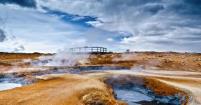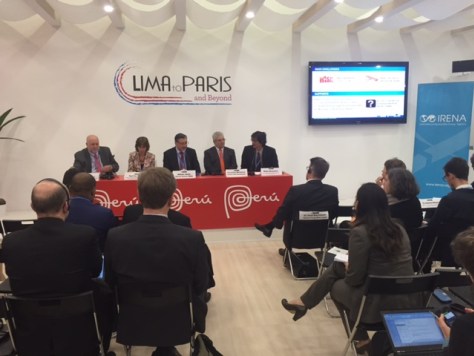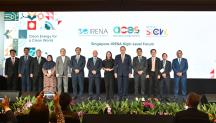

Harnessing the Earth’s Heat for Climate Action
Newsletter
Tapping into the earth's heat to produce geothermal energy offers the world enormous benefits. Proven resources exist in nearly 90 countries, but 90% of it still remains underground. For this reason, IRENA hosted a high-level workshop during COP21 to discuss the potential of this promising source of renewable energy, and ways to overcome the barriers which hold it back.
First some good news:
Mr. Gunnar Bragi Sveinsson, Minister for Foreign Affairs of Iceland – the world’s leader in harvesting geothermal energy – explained that 90% of all space-heating and close to 30% of all electricity in Iceland comes from geothermal sources. And that share will continue to grow as a result of vigorous expansion plans.
Mrs. Soifiat Tadjiddine Alfeine of Comoros described how the island is currently exploring its geothermal potential, and is in the planning phase for a 10MW geothermal plant with support from New Zealand. It is expected that geothermal energy could play a major role in addressing the island’s energy needs.
Indonesia plans to invest USD 20 billion to install an additional 2GW of capacity over the next 10 years, tripling its current installed capacity.

As for the less good news:
Speakers identified a range of challenges which the industry faces. These include: risks of exploration; high upfront development costs; human resource limitations; and regulatory difficulties. Moreover the simple lack of awareness about the promise and benefits of geothermal energy is a major barrier to its development – but also perhaps the easiest to overcome in the end. It was emphasized, however, that none of these obstacles are insurmountable.
Which brings us to some very good news:
On December 7, Energy Day at COP21, the Global Geothermal Alliance (GGA) will formally launch. The GGA will address investment challenges and help create the conditions for a rapid expansion of this key renewable resource. Its aim will be to break through existing barriers and achieve a 500% increase in global installed capacity for geothermal power generation, and a 200% increase in geothermal heating by 2030.
In development for two years, the GGA has attracted more than 40 countries and institutional partners. Its ambition will be nothing short of ensuring hundreds of millions of people are able to benefit from this clean and reliable source of renewable energy.




